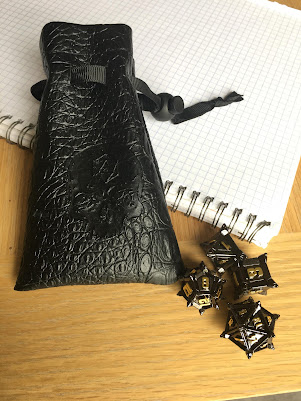Gygax and the pursuit of reality
Musings I was having today: It's pretty well known that Gary Gygax was a stickler for detail when it came to dungeons - the name "Gygaxian naturalism" is used to refer to the approach to dungeon design that foregrounds the dungeon's "ecology", and demands a level of realism usually regarded as absurd in the context of a fantasy game. There's a lot to unpack here that I'm going to try to skip over. For one, the idea of realism being opposed to fantasy is, in my view, an irritating fallacy. The response "Well it's fantasy, it's not supposed to be realistic" misses the point: An immersive and engaging fantasy requires at least some level of consistency, and a certain amount of relatability to anchor the players' interpretation of what's going on. If one nitpicks a detail like a character's being able to shrug off a stab wound, or goods in a shop costing more than anyone could possibly afford, the response "Well why d...
